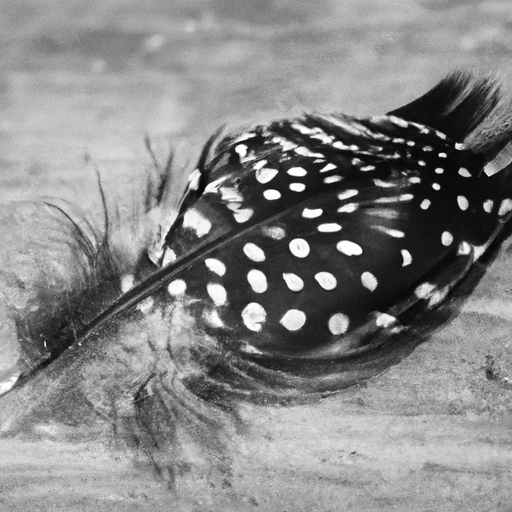If you’ve ever considered raising chickens in your backyard, you may have heard about the different types of breeds available. One question that often arises is whether there are specific care considerations for hybrid chickens compared to pure breeds. While both types of chickens offer their own set of benefits, hybrid chickens require a slightly different approach when it comes to their care. In this article, we will explore the unique aspects of caring for hybrid chickens and highlight some important factors to keep in mind for their well-being. Whether you’re a seasoned chicken enthusiast or just starting out, understanding the specific care needs of hybrid chickens can help ensure a thriving flock in your backyard.
Health Considerations
Vulnerability to Disease
When it comes to the health of your hybrid chickens, it is important to understand that they may be more susceptible to certain diseases compared to pure breed chickens. This is due to the fact that hybrid chickens are often bred for specific traits and characteristics, and this can sometimes result in a compromised immune system. Therefore, it is crucial to provide them with proper care, nutrition, and regular health checks to minimize the risk of disease.
Vaccination Requirements
Just like pure breed chickens, hybrid chickens need to be vaccinated to protect them against common diseases. However, it is important to note that vaccination requirements may vary depending on the specific hybrid breed and its susceptibility to certain diseases. Consult with a veterinarian to determine the appropriate vaccinations for your hybrid chickens and create a vaccination schedule to ensure their ongoing health and wellbeing.
Regular Health Checks
To monitor the health of your hybrid chickens and catch any potential issues early on, regular health checks are vital. This includes examining their eyes, beak, comb, and wattles for any signs of abnormalities or infections. Additionally, maintaining a clean and hygienic coop environment, providing plenty of fresh water, and offering a balanced diet will contribute to their overall health. Should you notice any signs of illness or behavior changes, it is imperative to seek veterinary attention promptly.
Feeding and Nutrition
Balanced Diet
Just like any other chicken, hybrid chickens require a well-balanced diet to thrive. This includes a combination of high-quality chicken feed, fresh fruits and vegetables, and access to insects and other sources of protein. Make sure to provide them with a balanced and complete chicken feed that caters to their specific nutritional needs. Additionally, offering a variety of treats and supplements can help promote their overall health and wellbeing.
Feeding Schedule
Establishing a consistent feeding schedule is essential for hybrid chickens. They should be provided with fresh food and water daily, and it is recommended to feed them multiple times a day to ensure adequate nutrition and prevent overeating. Larger meals can be provided in the morning and evening, while smaller snacks can be given throughout the day.
Supplements
In addition to a balanced diet, hybrid chickens may benefit from certain supplements. This can include calcium supplements to support their egg production, probiotics to promote a healthy digestive system, and vitamins to enhance their overall immune system. Before introducing any supplements, consult with a poultry nutritionist or veterinarian to ensure proper dosage and suitability for your hybrid chickens.
Housing and Environment
Space Requirements
Hybrid chickens, like any other breed, require ample space to live and thrive. It is important to provide them with a spacious and well-ventilated coop. As a general guideline, each hybrid chicken should have a minimum of 4 square feet of indoor space and at least 10 square feet of outdoor space. Additionally, make sure to provide enough perches and nesting boxes for your chickens to roost and lay their eggs comfortably.
Coop Design
When designing the coop for your hybrid chickens, there are a few key factors to consider. The coop should be sturdy and predator-proof, with secure latches and strong fencing to keep out potential threats. Adequate ventilation and natural light should also be incorporated into the design to maintain a healthy environment. Additionally, providing nesting boxes that are easily accessible and private will encourage your hybrid chickens to lay their eggs in a designated area.
Ventilation
Proper ventilation is crucial for the health and well-being of your hybrid chickens. Good airflow helps remove moisture, ammonia, and other airborne contaminants that can lead to respiratory issues. Ensure that your coop design includes windows, vents, or open spaces that can be adjusted according to weather conditions. Regularly check the ventilation system to ensure it is functioning effectively and clean any vents or filters as necessary.
Temperature Control
Maintaining a suitable temperature in the coop is essential for the comfort and health of your hybrid chickens. They are generally adaptable to various climates, but extreme temperatures can pose a risk. Provide insulation in colder months to keep the coop warm and draft-free. In hotter climates, provide shade, ventilation, and access to fresh water to prevent heat stress. Monitoring the temperature inside the coop and making adjustments when necessary will help create a favorable environment for your hybrid chickens.
Socialization and Behavior
Flock Dynamics
Understanding the dynamics of your hybrid chicken flock is important for their socialization and overall well-being. Each hybrid chicken has its own personality and hierarchy within the flock. It is natural for them to establish a pecking order, which can influence their behavior and interactions. Proper flock management, such as providing enough space, food, and enrichment activities, can help minimize aggressive behaviors and promote a harmonious flock dynamic.
Integration with Other Chickens
If you plan to introduce hybrid chickens to an existing flock, careful integration is key. Quarantine new birds for a period of time to ensure they are healthy and free from any diseases or parasites that could be transmitted to the existing flock. When introducing them, monitor their interactions closely to prevent excessive pecking or bullying. Providing multiple feeding stations and spaces to retreat can help reduce competition and ease the integration process.
Environmental Enrichment
Keeping your hybrid chickens mentally and physically stimulated is essential to their overall well-being. Providing environmental enrichment can help prevent boredom, stress, and undesirable behaviors. This can include providing perches, dust baths, and toys within the coop and run. Additionally, allowing them access to natural foraging areas where they can scratch and peck for insects and plants will keep them engaged and satisfied.
Egg Production
Frequency of Egg Laying
Hybrid chickens are known for their excellent egg-laying abilities. Depending on the specific hybrid breed, they can produce a large number of eggs. Typically, hybrid chickens lay eggs consistently throughout the year, with some variations due to factors such as age, health, and environmental conditions. It is essential to provide them with the proper nutrition, lighting, and nesting boxes to support their egg-laying potential.
Egg Quality
Hybrid chickens generally produce high-quality eggs with strong shells and vibrant yolks. However, it is important to ensure they receive a balanced diet to maintain optimal egg quality. Providing ample calcium through feed or supplements is crucial for strong eggshells. Fresh and clean bedding in nesting boxes will help ensure that eggs remain uncontaminated and safe for consumption.
Nesting Boxes
To encourage your hybrid chickens to lay their eggs in a designated area, providing suitable nesting boxes is crucial. These boxes should be dark, quiet, and comfortable to replicate the natural nesting environment. Each hybrid chicken should have access to its own nesting box to prevent competition and stress. Regularly clean and inspect the nesting boxes to ensure they are free from dirt, debris, and any signs of pests.
Broodiness
Hybrid Chicken’s Natural Tendency
While some hybrid chickens may exhibit broody behavior, it is less common compared to certain pure breeds. Broodiness is the instinctual desire to incubate and hatch eggs. This behavior can interrupt egg production and disrupt the flock dynamics. If broodiness becomes an issue, consult with a poultry expert or consider selecting hybrid breeds that are less prone to broodiness.
Impact on Egg Production
When a hybrid chicken becomes broody, it will often stop laying eggs. This can impact the overall egg production of your flock. In addition, broodiness can lead to stress for the broody hen and impact her overall health. Encouraging the broody hen to return to her usual routine by providing distractions and removing any eggs she may be attempting to incubate can help restore normal egg production.
Managing Broodiness
If broodiness becomes a recurrent issue with your hybrid chickens, there are several strategies to manage and prevent it. Ensuring adequate lighting and a balanced diet can help maintain consistent egg production and reduce the likelihood of broodiness. Additionally, removing any potential nesting materials or isolating the broody hen temporarily can discourage the behavior. Should broodiness persist, consulting with a veterinarian or poultry specialist may be necessary to determine the underlying cause and provide appropriate guidance.
Predator Protection
Common Predators
Predators pose a significant threat to the safety of your hybrid chickens. Identifying the common predators in your area is essential to implement effective protection measures. This may include predators such as raccoons, foxes, coyotes, rats, snakes, and even neighborhood dogs or cats. Understanding their behavior and habits will aid in devising a comprehensive predator protection plan.
Securing the Coop
To safeguard your hybrid chickens from predators, ensuring a secure coop is paramount. Regularly inspect the coop for any potential entry points or weak spots that could be exploited by predators. Reinforce fences and doors with sturdy materials, such as hardware cloth, and use locks or latches that are predator-proof. Additionally, installing an apron or burying wire mesh around the perimeter of the coop can deter digging animals.
Nighttime Safety Measures
Predators are often more active during the night, making it crucial to implement specific safety measures for your hybrid chickens. Closing the coop door at dusk and ensuring windows, vents, and other openings are secure will prevent predators from gaining access. Installing motion-activated lights or using predator deterrents, such as sound devices or predator decoys, can further deter nocturnal predators. Regularly inspect the coop in the morning for any signs of attempted entry or disturbed surroundings.
Grooming and Maintenance
Feather Care
Maintaining healthy feathers is important for the overall health and protection of your hybrid chickens. Regularly inspect their feathers for any signs of damage, parasites, or molting. Provide a dust bath area in the coop or run, using sand or diatomaceous earth, which will aid in keeping their feathers clean and free from mites or lice. If necessary, carefully remove any damaged feathers or apply appropriate treatments for parasites.
Nail Trimming
Trimming your hybrid chickens’ nails periodically is important to prevent overgrowth and potential injuries. While they may naturally wear down their nails through scratching and perching, some individuals may require nail trimming. Use specialized poultry nail trimmers or clippers to trim the pointed ends of their nails, taking care not to cut too close to the quick. If you are unsure or uncomfortable with this task, consult with a veterinarian or an experienced poultry keeper.
Bathing
Bathing is not usually necessary for chickens, as they are capable of maintaining their own cleanliness through dust bathing. However, in certain cases where your hybrid chickens may become excessively dirty or have sticky substances on their feathers, a gentle bath may be required. Fill a basin or shallow container with lukewarm water and ensure the water level does not exceed their chest. Gently immerse the affected area and use a mild poultry shampoo if necessary. Rinse thoroughly and ensure your hybrid chickens are fully dry before returning them to their coop.
Breeding Considerations
Hybrid Breeding Challenges
Breeding hybrid chickens can present unique challenges compared to breeding pure breeds. As hybrids are created by crossing two different breeds, their offspring may not possess the desired traits or characteristics. Hybrid vigor, which contributes to the robust health and productivity of hybrids, does not necessarily pass on to subsequent generations. Therefore, careful selection and breeding planning are crucial when working with hybrid chickens.
Selective Breeding
If you intend to breed hybrid chickens, it is important to carefully select the parent stock for desirable traits. Consider the specific goals of your breeding program, such as egg production, temperament, or color, and choose parent birds that exhibit those traits. It is also important to maintain genetic diversity to maximize hybrid vigor and avoid inbreeding. Consulting with experienced breeders or poultry experts can provide valuable guidance in the selective breeding process.
Monitoring Genetic Health
Maintaining the genetic health of your hybrid flock is crucial for their long-term well-being. Regularly monitor the offspring for any deformities, health issues, or undesirable traits that may arise. Consider implementing a breeding program that incorporates genetic testing or seeking advice from a veterinarian or poultry geneticist. By monitoring and selecting for genetic health, you can help ensure the overall stability and vitality of your hybrid flock.
Training and Handling
Basic Training Commands
While training chickens may not be as common as training dogs or other domestic animals, some basic commands can be taught to your hybrid chickens. Commands such as “come,” “stay,” or “off” can be used during free-ranging activities or to prevent your chickens from accessing certain areas. Using positive reinforcement techniques, such as treats or rewards, can help them associate the commands with desired behavior.
Handling Techniques
Proper handling of your hybrid chickens is important for their safety and well-being, as well as your own. When handling them, be gentle and avoid squeezing or putting excessive pressure on their bodies. Support their legs and wings when lifting them, and try to keep them calm and secure during the process. Practice handling your hybrid chickens from an early age to ensure they become accustomed to human interaction.
Bonding with Chickens
Building a strong bond with your hybrid chickens can result in a more trusting and rewarding relationship. Spending time with them, talking to them in a calm and friendly voice, and offering treats can help establish trust and familiarity. Avoid sudden movements or loud noises that may startle them. The more comfortable and familiar they are with you, the easier it will be to handle and care for them.
In conclusion, hybrid chickens require specific care considerations to ensure their health, well-being, and productivity. From vaccination requirements and regular health checks to providing a balanced diet and suitable housing, it is important to meet their unique needs. Understanding their socialization and behavior, managing egg production, and implementing predator protection measures are also essential aspects of hybrid chicken care. By following these comprehensive guidelines and actively engaging in their care and welfare, you can provide your hybrid chickens with a comfortable and fulfilling life.




